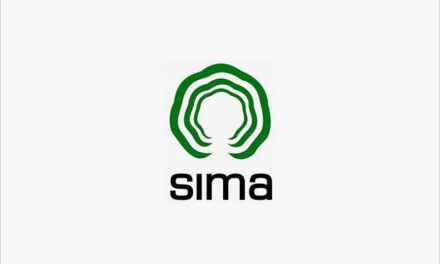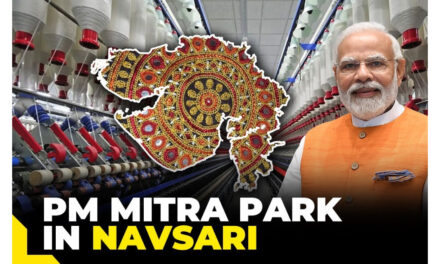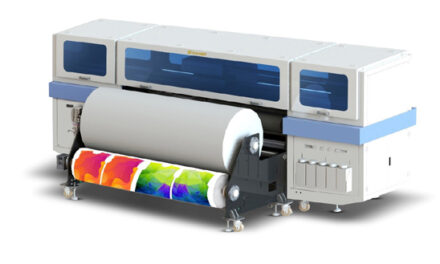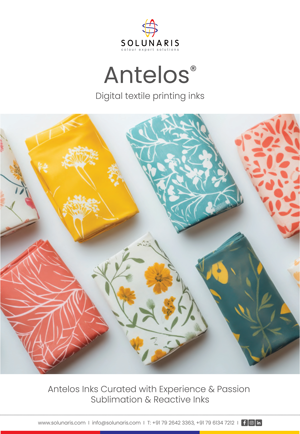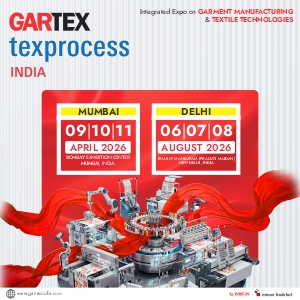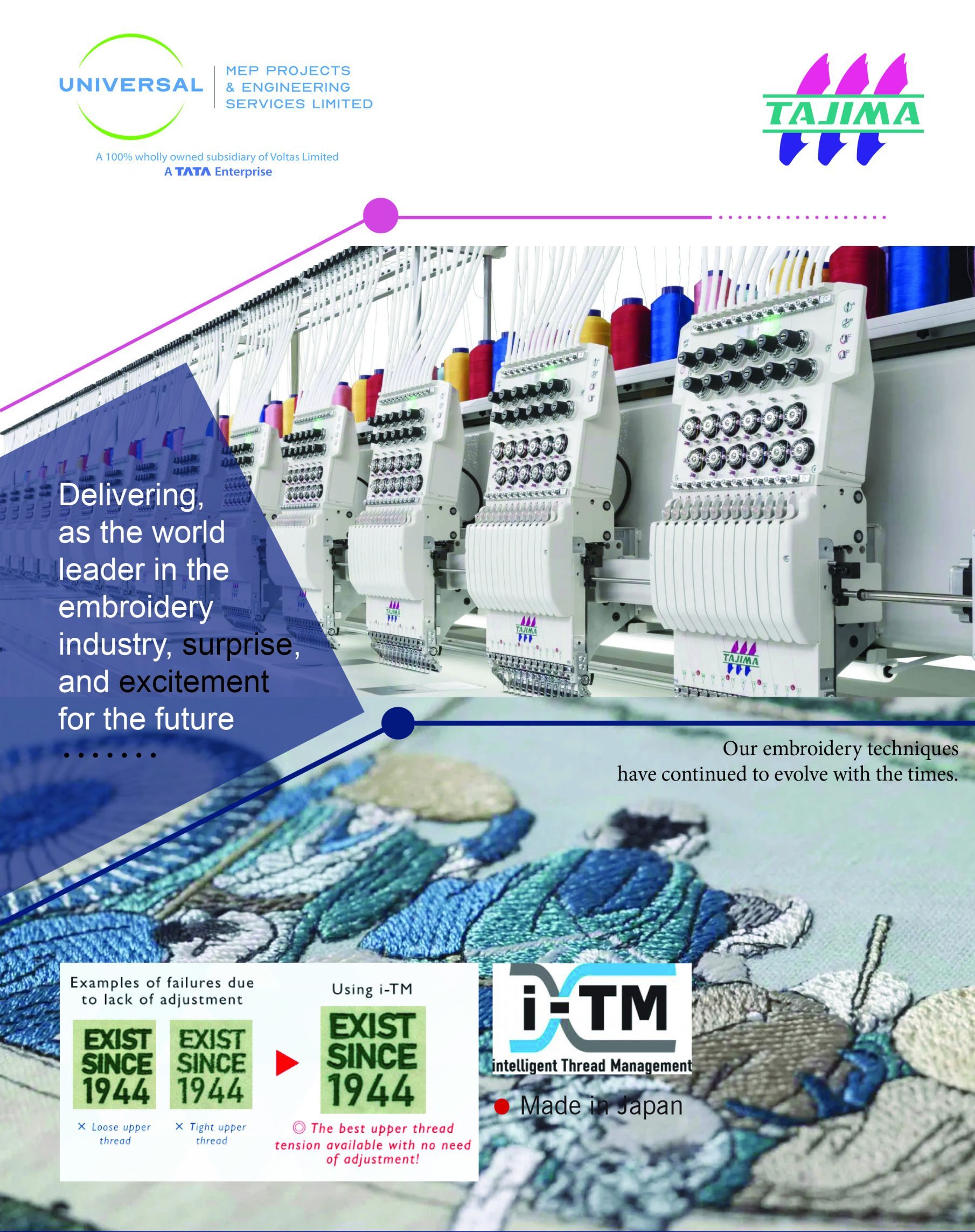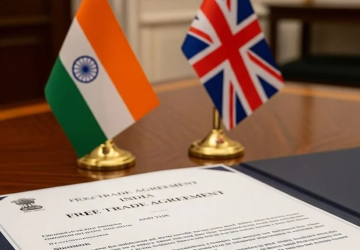
Shoppers eyeing premium apparel may soon have to pay more. Under the revamped Goods and Services Tax (GST 2.0), the rate on branded clothes and accessories priced above Rs 2,500 per piece has been raised from 12% to 18%, a move that could impact global fashion brands such as Marks & Spencer, Levi’s, Zara and H&M.
The hike, aimed at streamlining revenue collections, is expected to push up the prices of high-end garments, making premium shopping a little heavier on consumer wallets. Industry experts warn that this could dampen demand in the mid-to-premium segment, particularly among aspirational buyers.
At the same time, the government has sought to balance the burden by correcting the long-pending inverted duty structure in the textile sector. The GST on manmade fibres has been slashed from 18% to 5%, and manmade yarn from 12% to 5%. This realignment is expected to boost domestic textile manufacturers, reduce input costs, and make India’s synthetic textile industry more competitive globally.
Other reliefs under GST 2.0 include reducing the tax on technical textile products such as industrial fabrics, machine-use textiles, and specialised felts from 12% to 5%. Similarly, handmade and hand-embroidered shawls, a key cottage industry product, will also attract a lower GST of 5%, down from 12%.
While luxury and branded apparel shoppers may feel the pinch, the structural changes are expected to provide long-term benefits for India’s textile ecosystem. Manufacturers anticipate that lower input costs will eventually improve efficiency and help the sector expand, though short-term consumer prices in the premium fashion market are set to rise.
Initial reaction of Confederation of Indian Textile Industry (CITI) Chairman, Shri Rakesh Mehra “We thank and welcome the rectification of the GST inversion in the Man-Made Fibre (MMF) value chain by aligning MMF fibre and yarn at 5% from 18% and 12% earlier respectively. It addresses the long-standing blockage of working capital for thousands of spinners and weavers. With over 70-80% of textile and apparel units in India being MSMEs, this reform will directly benefit a large segment of the industry by easing liquidity pressures, enhancing competitiveness.”
Clothing Manufacturers Association of India’s reaction to latest changes in GST rates, CMAI, wholeheartedly welcomes the latest changes made in the GST Rates, especially relating to the Textile Industry. The Government has accepted two major requests of the Industry – the removal of the Inverted Duty Structure by making the entire Value Chain from Fibre onwards charged at one rate – 5% – and adopting a fiber-neutral policy, by equating the MMF and Cotton fiber chains. The increase of the 5% limit from Rs.1000 to Rs.2500 is also an extremely positive move.
CMAI has only one request to the GST Council. In the entire Value Chain from Fiber to Garment, garments above Rs.2500 are the only products which are not at 5%. We earnestly request the Council to remove this anomaly, and either place all Garments, irrespective of the price, at 5%, or fix a more reasonable and realistic price level.
Garments above the price of Rs.2,500 are also consumed in large numbers by the common man and middle class, especially woolen clothing, occasion wear, Indian Traditional clothing, Handlooms, embroidered clothes produced by artisans and traditional weavers are all priced above this limit of Rs.2,500 – all of which will see a significant price increase due to this change of GST Rate. CMAI thus strongly urges the GST Council and Government to review this aspect.
Further Sudhir Sekhri, Chairman AEPC said “AEPC welcomes the Government’s latest #GST reforms. The GST reforms announced by the Government marks a big step in making India a developed economy. These measures are progressive and forward looking as they will ease compliance, improve liquidity for exporters, and strengthen India’s textile & apparel value chain. Apparel industry hails it as a decisive step towards boosting #MakeInIndia & enhancing export competitiveness. AEPC thanks the visionary leadership of Hon’ble Prime Minister, Shri Narendra Modi, for supporting the apparel and textile industry with simplified, industry-friendly measures.
On the new GST rates Mr. Rajeev Gupta, Joint Managing Director, RSWM Ltd said “We welcome the Government’s forward-looking GST reform, which will have a far-reaching impact on India’s economic growth by improving affordability, reducing working capital requirements, and boosting demand across industries. For the textile sector, this is a particularly transformative step. The reduction of GST on manmade fibre from 18% to 5% and on synthetic yarn from 12% to 5% will significantly strengthen the domestic textile industry, enhance competitiveness, and stimulate consumption. The revision of the apparel slab, raising the limit from ₹1,000 to ₹2,500, will provide a powerful boost to garments and apparel demand, thereby creating new opportunities across the textile value chain. At the same time, we believe that harmonizing GST on recycled polyester fiber and its raw material, PET bottles (18%), is an important area that needs attention to unlock the full potential of circular textiles. We remain committed to driving sustainable innovation, scaling domestic production, and contributing to India’s journey towards Viksit Bharat @2047”.



